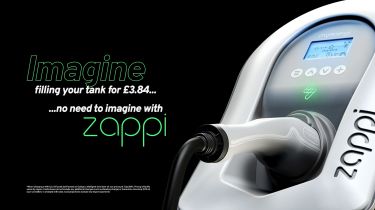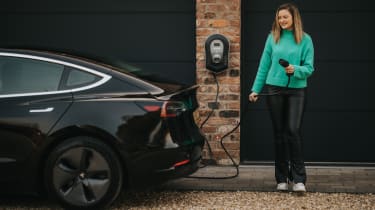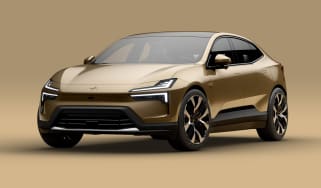Give your EV confidence a boost with myenergi
Ready to make the switch to electric power? Future-proof your energy needs with a smart eco-system for the home from myenergi

Battery electric vehicles are the future, helping to achieve the vision of a cleaner, greener environment for all of us to enjoy. With car manufacturers now legally required to follow the Government’s ZEV (Zero-Emission Vehicle) mandate for increasing EV sales targets each year, our energy usage is moving more rapidly away from fossil fuels to electric power and renewable sources such as wind and solar.
Sure, there will be challenges to overcome along the way, but you’d expect this when you consider that there’s more than one billion car owners globally looking to make the transition to an all-electric vehicle.
One of the key issues for car manufacturers and pioneering tech companies such as myenergi, has been customer concern over how far their EV can travel on a single charge – commonly known as range anxiety.
Anxiety comes from a fear of the unknown - so let’s deal with the facts. How much do we actually drive on a daily or weekly basis? Well, cars in the UK travel an average of 18 miles a day, or around 127 miles a week. That’s well within the maximum range of almost all EVs on sale today, so for the most part you’ll be looking to top up your car’s battery just once a week, or perhaps even fortnightly. And, combined with ever-faster charging capability and efficiency improvements, it means electric car ownership should be a truly effortless experience.

Access to public charging points in the UK is growing exponentially, with more than 51,000 devices available across the country (an increase of 45 per cent over 2022), while for those travelling across Europe, the EU has a specific requirement for high-power EV recharging stations to be installed every 38 miles along main roads by 2025.
It all points towards a reassuringly robust approach, providing a modern charging infrastructure that helps to put any lasting notion of range anxiety firmly in the past.
But, what next? Once buyers have pushed through the glass ceiling to adopt battery electric power, where do they go for the most eco-smart home charging solution? Working together with myenergi can connect the dots in your EV journey, offering more choice and control over how you use your energy, while also providing substantial savings.
Take the myenergi zappi solar EV charger: it can operate as a regular home car charger using power from the grid, but also provide charging modes that use 100 per cent green energy from your own solar PV system or via wind generation.

The numbers are stark - If you ran a petrol-engined car such as a Volkswagen Golf 1.5 TSI, it would cost you around £77 to fill its 50-litre tank and provide an approximate 560-mile range.
However, if you opted for an electric model, such as the VW ID.3 (with a 58kWh battery), you could take advantage of cheaper off-peak charging tariffs via myenergi’s partnership with Intelligent Octopus.
It would cost just £4.35 for a complete battery top-up this way and, if you drew in 20 per cent of the overall charge from solar energy, it would bring this figure down to a staggeringly cheap £3.48. With the ID.3 having a claimed range of 270 miles, it means you could cover the same distance as the petrol-engined Golf for around £10.
Charging with solar power effectively gives you free miles, while linking up with the myenergi zappi EV charger provides astonishing savings: charging the ID.3 (from 0-100 per cent) once a week using the off-peak/20 per cent solar arrangement, would incur an annual fee of just £181. To cover the same mileage in the petrol model would cost closer to £2,000. With this in mind, smart charging takes on a whole new meaning.
Also focused on future-proofing your energy needs, myenergi has created an easy-to-install, smart eco-system for the home. Products such as its eddi smart diverter and the libbi modular battery storage system combine to give you ultimate control of how you use your energy, while the clever harvi wireless sensor supplies all the necessary data to extract maximum overall efficiency.
There’s enough stress in daily life - myenergi is here to make charging your EV easier, greener and more cost-effective.
Book your zappi install here: https://www.myenergi.com/zappi-ev-charger/
*When charging a VW ID.3. Off-peak tariff based on Octopus Intelligent Go's time-of-use pricing at 7.5p/kWh. Pricing of tariffs varies by region. Costs shown do not include any additional charges (such as standing charge) or discounts. Assuming 20% of your car battery is charged with solar. Cost projections exclude and export payments.
Most Popular

Vauxhall Corsa Electric price cut makes it cheaper than a petrol Corsa

New electric MG Cyberster roadster could be on your driveway this summer for under £55k

New Polestar 4: prices, specs and summer 2024 release date